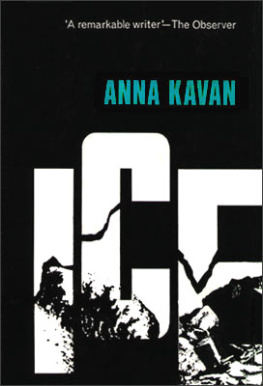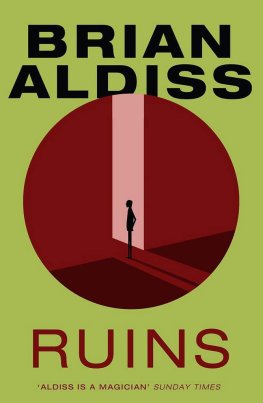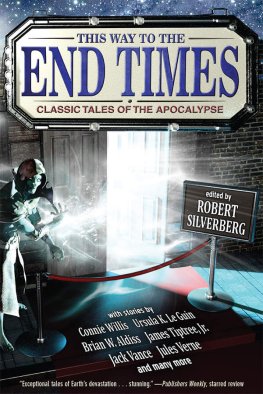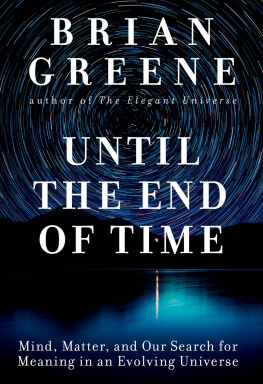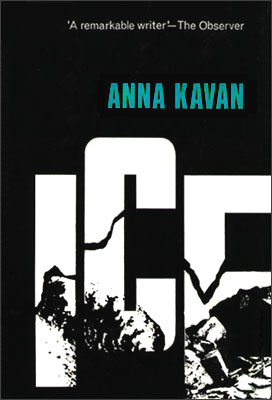
ANNA KAVAN
ICE
Foreword by Christopher Priest
PETER OWEN PUBLISHERS
Anna Kavan 1967 Estate of Anna Kavan and Peter Owen Ltd 1968 First published in Great Britain 1967 Reprinted 1997 This edition first published 2006 Reprinted 2011 Foreword Christopher Priest 2006
ISBN 978-0-7206-1268-4
Foreword
Anna Kavan's Ice is a work of literary slipstream, one of the most significant novels of its type. It was the last of the novels she wrote (it was published in 1967, a year before her death), although two other novels, whose manuscripts were found in her papers, appeared later). It is serious, evocative and surprising, unique in its obsessive images of encroachment. It is also unusual for its virtually plotless story, told in scenes of happenstance and coincidence.
The idea of slipstream literature arose in the United States at the end of the 1980s. It was originally an attempt to identify a certain kind of ambitious science fiction, which lay outside the familiar pulp-magazine tropes of space travel, alien invasions, time travel and so on. Science-fiction writers whose work qualified as slipstream included J.G. Ballard, John Sladek, Thomas M. Disch, some of Philip K. Dick and several others. At the same time, other writers, who were outside the science-fiction genre but whose work could conceivably fit into the wider definition allowed by slipstream, were summoned in support. So Angela Carter, Paul Auster, Haruki Murakami, Jorge Luis Borges and William S. Burroughs were some of the writers invoked in this cause. Another notable inclusion was, of course, Anna Kavan.
The trouble with slipstream, in this early sense, was that its American advocates were in effect trying to create a new marketing category, a niche in the trade into which books that were traditionally difficult to sell might be channelled to find a market.
The ways of the bookselling trade are slow to change, though, and nothing much came of that.
However, there was a real perception behind the label, and the idea of slipstream has taken hold and is still a rewarding way to approach a complex and intriguing writer such as Kavan.
The best way to understand slipstream is to think of it as a state of mind or a particular approach, one that is outside all categorization. It is, in essence, indefinable, but slipstream induces a sense of 'otherness' in the audience, like a glimpse into a distorting mirror, perhaps, or a view of familiar sights and objects from an unfamiliar perspective. In general it imparts a sense that reality might not be quite as certain as we think. It is therefore possible to find elements of slipstream outside literature: in music, films, graphic novels, installation art and so on. Slipstream often deals with science, or the effects of science, but not in a mechanical or exact way. Thus it reflects the feelings of many people in the real world, who move in an increasingly science-dependent society without fully understanding how things work. (How many people can describe exactly how a cellphone works, for example? Yet mobile phones are transforming the way we live our ordinary lives.)
Ice by Anna Kavan is a prime example of slipstream, but other instances might help define this virtually indefinable subject.
In literature, slipstream stands above genres of fiction. In this way, some of science fiction can certainly be recognized as slipstream (but by no means all). So, too, can many examples of magic realism: Gabriel Garcia Mrquez's One Hundred Years of Solitude is slipstream, for instance. Some television drama would qualify: The Singing Detective by Dennis Potter and a recent BBC series called Life on Mars, about an ordinary detective who travels back in time to police procedural work thirty years earlier, are examples of popular slipstream. In cinema recent slipstream films include Christopher Nolan's Memento, Juan Carlos Fresnadillo's Impacto and Spike Jonze's Being John Malkovich.
All these works present the images of the ordinary world through shifting mirrors and distorting lenses, without attempting to explain. Being John Malkpvich, for instance, is about an unsuccessful puppeteer whose speed and skill with his hands get him a job as a filing clerk. One day, while working in the office, he discovers a hole hidden behind one of his filing cabinets; on exploring it he finds it is a portal of some kind that leads into the mind of the actor John Malkovich. Nothing is given a pseudo- scientific explanation (which would make it science fiction), but the strangeness is laid plainly before the audience so that they, like the characters in the drama, take everything at its face value without questioning it further than initial curiosity.
The strangeness of Ice is apparent from the first paragraph.
Someone driving late at night in bad weather calls in at a filling station. He - because of the author's gender we might assume at first that the narrator is female, but it soon becomes apparent that he is male - talks to the pump attendant. They speak of ominous events: the weather is remarkably cold. The roads are frozen, and the village the driver is heading for is remote and difficult to reach. Much is left undefined. We learn almost nothing about the driver, and we don't know in which country the scene is set or even the time of year. 'Never known such cold in this month.' It seems an unnaturally vague way of chatting about the weather, but for the reader of a novel the strangeness, even awkwardness, of the phrase 'in this month' raises an extra uncertainty. Which month are they talking about? Is it early or late winter, when snow might be unusual? Or is it a summer month, when nothing at all like this should happen? We never find out.
In fact, the cryptic quality of the opening paragraph sets the tone for the rest of the novel. There are three principal characters: the narrator, a young woman and a man who is probably her husband. None of them is ever named. The woman's husband seems to be an official of some kind (he is sometimes described as a warden, although at others he is a painter or a dilettante), while the narrator is a military man, perhaps in an intelligence role for a government.
There follows an extended pas de trois across the landscapes of a world rapidly freezing over. The narrator appears to move on whim or at hazard: he accepts lifts, follows his instincts, follows orders. Wherever he turns up the young woman and her husband are there, too. Sometimes he only glimpses the woman, but she eludes him. At other times he manages to speak to her and at one point even manages to escape with her in his car. The husband is sometimes compliant, sometimes aggressive.
Because of the way Kavan describes her nameless characters, and because she is so apparently intent on physical and emotional uncertainty, the reader is frequently left stranded, if only momentarily. Her prose is beautifully measured, sometimes fey, sometimes muscular.
Dreams and memories (or are they flashbacks?) obtrude into the main story, without warning, without explanation or even without being given a rationale within the context of the other events.
Clearly, Ice is not a realistic novel in which the conventions or formulas of popular fiction are adopted. Approached with the usual kind of expectation, Ice will seem crudely constructed, even arbitrary, because the story lacks cause and effect. At the same time, the background is not realistic. Kavan's depiction of a new ice age owes nothing to current fears about global warming, which she might well have known about, since although the concept of climate change has recently entered common parlance it is a process that has been monitored scientifically since at least the beginning of the twentieth century. Nor even does it show any realistic relation to the opposite fears: reglaciation theories were fleetingly in vogue in the decade in which she was writing, but they were nothing like Kavan's world of towering ice mountains, steep valleys blocked by snow and so on.
Next page
